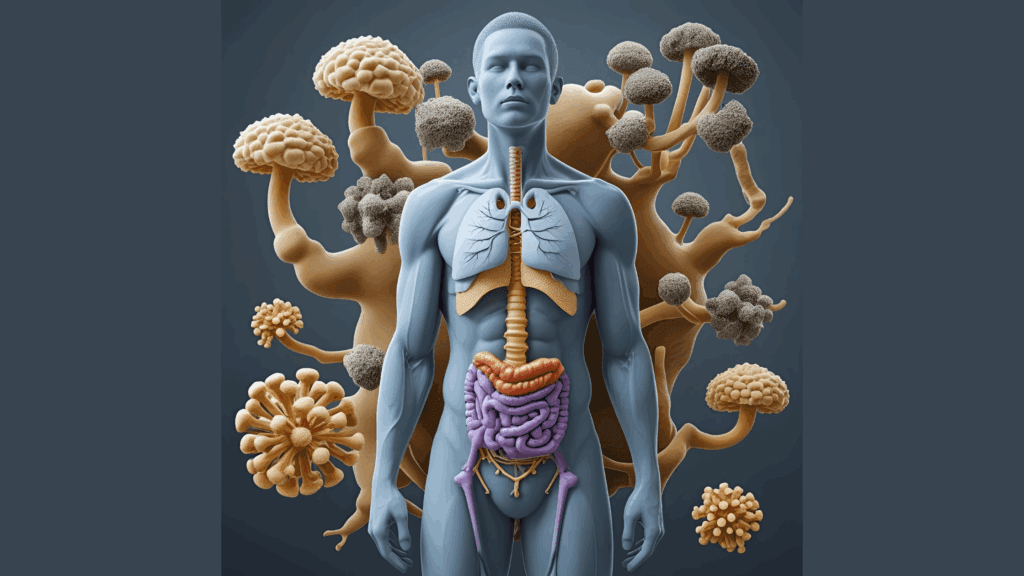How Mould Disrupts Biochemistry, Immunity & Detoxification
Understanding the systemic impact of mycotoxins in clinical practice
Mould-related illness is often misunderstood as a localised respiratory issue, but in reality, mycotoxins disrupt the body at nearly every level. From mitochondrial damage to immune dysregulation and impaired detoxification, their effects are complex, far-reaching, and deeply biochemical. For health practitioners, understanding these mechanisms is critical to identifying and treating mould-affected patients effectively.
1. Mycotoxins: Small Molecules, Massive Impact
Mycotoxins are secondary metabolites produced by moulds such as Aspergillus, Fusarium, and Penicillium. Despite their tiny size—typically around 0.1 microns—they have profound systemic effects. Once inhaled, ingested, or absorbed, these toxins:








